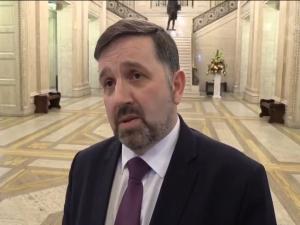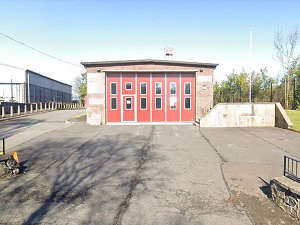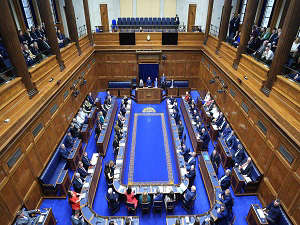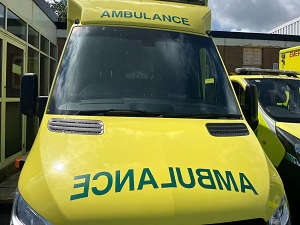
By David Young and Rebecca Black, PA
Northern Ireland's health minister has announced plans for 800 coronavirus tests a day as the region prepares to deal with the expected surge.
Robin Swann said the surge plan - which will run to mid-April - includes maximising staff numbers by deploying final-year medical students and prioritising essential services.
The development came on Thursday afternoon, just hours after the first death of a patient with Covid-19 was confirmed in the region.
Stormont's Department of Health said the patient, who died in hospital in the Greater Belfast area, was elderly and had an underlying health condition.
Mr Swann as well as First Minister Arlene Foster and Deputy First Minister Michelle O'Neill expressed sadness at the development.
A total of 77 people have tested positive for Covid-19 in Northern Ireland. In the Irish Republic, 366 people have tested positive and two people have died.
Under the surge plan announced by Mr Swann, increased testing will be available to frontline health and social care staff, ensuring that they can continue to deliver vital services.
Allowing third-year nursing and midwifery students within the last six months of qualifying to be deployed will provide support of up to 880 senior nursing and midwifery students.
All health trusts have identified specific wards to provide extra bed capacity for coronavirus patients and some 40 additional mechanical ventilators have been ordered, taking the total available in Northern Ireland to 179 by the end of March.
Mr Swann said the health service will "fast become unrecognisable".
"Changes that would have seemed unthinkable weeks ago will become the new norm. Decisions that would previously have taken months or even years will be taken in hours," he said.
Renewing his plea to the public to practise social distancing, he said the measures could potentially reduce the peak by some 50% and cut deaths by up to a third.
"Planning assumptions also indicate that 8% of infected people will require hospitalisation, 0.7% will require critical care, and 1% will die - although these figures will vary highly depending on age and other health factors," he said.
"There is no doubt that these measures come at a cost. They will be difficult for people to stick to. They will have significant social and economic impacts. But they will save lives.
"We all must continue to rigidly follow the advice on hand-washing and 'catch it, bin it, kill it' when we cough or sneeze and use a tissue.
"I cannot emphasise this enough. This will help keep more of our family members, neighbours and friends well and by doing so reduce pressures on our health service.
"As I have already stated publicly, doing the right thing is essential if the health and social care system is to get through this."
Mr Swann also issued a thank you to staff in the health and social care sector for their work so far.
"I am proud of you and I commit to giving you my full support in the days and months ahead," he said.
"The words 'thank you' seem woefully inadequate in the circumstances but they still need to be said - on behalf of everyone across our society."
Earlier, following the death of the coronavirus patient, Mrs Foster said: "It is incumbent on all of us to do whatever we can to slow its spread and shield those most vulnerable from the effects of this virus."
Ms O'Neill said: "This sad news brings home to us all why it is so important to take every step possible to protect ourselves and the most vulnerable.
"The social distancing measures we are urging everyone to take are not easy, but they are necessary. We all have a part to play in keeping people safe and ultimately saving lives."


 Large quantity of vital equipment stolen from fire station
Large quantity of vital equipment stolen from fire station
 Woman forced to jump out window during burglary in Downpatrick
Woman forced to jump out window during burglary in Downpatrick
 ‘No easy answer’ to determining salaries for politicians
‘No easy answer’ to determining salaries for politicians
 ‘Dramatic deterioration’ in ambulance handover times reported
‘Dramatic deterioration’ in ambulance handover times reported
 ‘No routes’ for NIE Networks to make compensation payments after Storm Eowyn
‘No routes’ for NIE Networks to make compensation payments after Storm Eowyn